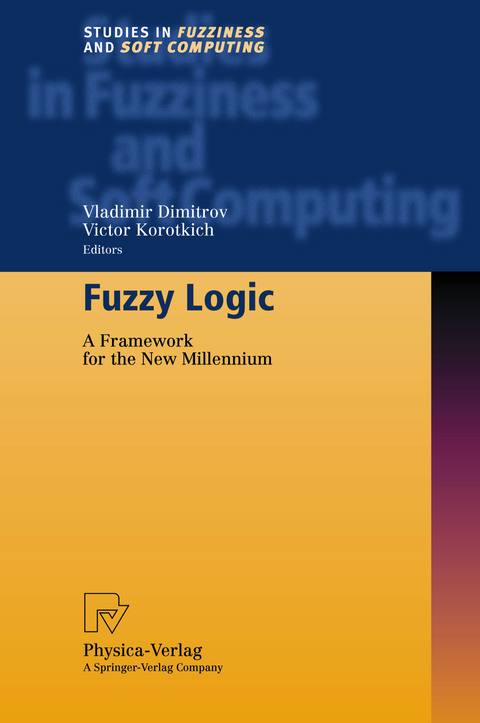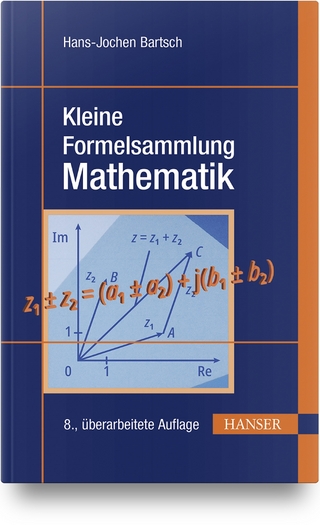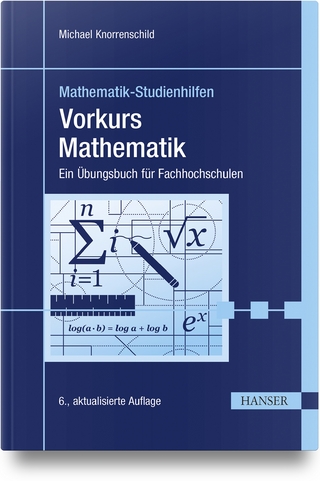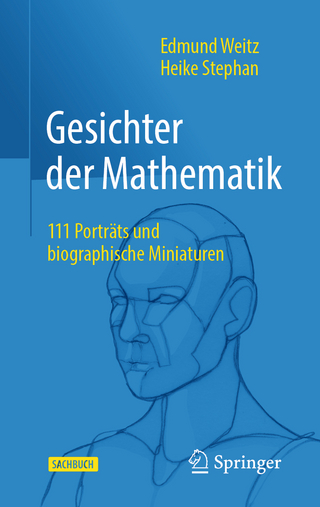
Fuzzy Logic
Physica (Verlag)
978-3-7908-1425-5 (ISBN)
At the beginning of the new millennium, fuzzy logic opens a new challenging perspective in information processing. This perspective emerges out of the ideas of the founder of fuzzy logic - Lotfi Zadeh, to develop 'soft' tools for direct computing with human perceptions. The enigmatic nature of human perceptions manifests in their unique capacity to generalize, extract patterns and capture both the essence and the integrity of the events and phenomena in human life. This capacity goes together with an intrinsic imprecision of the perception-based information. According to Zadeh, it is because of the imprecision of the human imprecision that they do not lend themselves to meaning representation through the use of precise methods based on predicate logic. This is the principal reason why existing scientific theories do not have the capability to operate on perception-based information. We are at the eve of the emergence of a theory with such a capability. Its applicative effectiveness has been already demonstrated through the industrial implementation of the soft computing - a powerful intelligent technology centred in fuzzy logic. At the focus of the papers included in this book is the knowledge and experience of the researchers in relation both to the engineering applications of soft computing and to its social and philosophical implications at the dawn of the third millennium. The papers clearly demonstrate that Fuzzy Logic revolutionizes general approaches for solving applied problems and reveals deep connections between them and their solutions.
Fuzzy Logic: A Framework for the New Millennium.- 1. Understanding Society.- to Fuzziology.- Why Does Fuzzy Logic Need the Challenge of Social Complexity?.- Fuzziology and Lifelong Learning.- Use of Fuzziology when Dealing with Hard Negotiation.- Fuzzy and Amorphic Boundaries in Intercultural Space: The Case of Mexico and the USA.- Self-Organisation of the Community: Democratic Republic or Anarchic Utopia.- The Poetic License of the Fuzzy Paradigm.- Fuzzy Interplay of Contrasts as Perception-Based Invariant in Art and Design.- Human Behaviour: Moving From Dizzy to Fuzzy.- Fuzziology in Search of Insights for Understanding Global Economy.- 2. Mathematics and Modelling.- On Self-Organization of Cooperative Systems and Fuzzy Logic.- Evolutionary Optimization of Fuzzy Models.- Sugeno Integral from a Point of View of Fuzzy Logic.- On Understanding the Structure of Variance-Covariance Matrix for Dealing with Fuzziness in Financial Markets.- Towards Robot Soccer Controlled by Fuzzy Logic.- Indexing and Retrieval of Fuzzy Shapes.- 3. Control Systems.- Reasoning and Analysis of Uncertainties within Command and Control Navigation Simulation Using Fuzzy Logic Petri Net.- Indirect Adaptive Fuzzy Control of Nonlinear Systems with Terminal Sliding Modes.- A New Approach in Fuzzy Adaptive Filtering.- Exploring the Explanatory Capabilities of Intelligent System Technologies.- Integrating Soft Computing Classification Technique for Linguistic Data in a Petroleum Engineering Application.- P-Expert: A Prototype Expert Advisory System in the Management and Control of Parthenium Weed in Central Queensland.- Designing a Fuzzy Gain Lyapunov Adaptive Filter Algorithm.- Neuro-Fuzzy Control Applications: Looking for New Areas and Techniques?.- Modelling Coral Bleaching Events Using a Fuzzy LogicTechnique.- Sources, Measurements and Models of Type 2 Fuzziness in the New Millennium.- Learning Ecology for Human and Machine Intelligence: A Soft Computing Approach.
| Erscheint lt. Verlag | 26.2.2002 |
|---|---|
| Reihe/Serie | Studies in Fuzziness and Soft Computing |
| Zusatzinfo | IX, 394 p. |
| Verlagsort | Heidelberg |
| Sprache | englisch |
| Maße | 155 x 235 mm |
| Gewicht | 734 g |
| Themenwelt | Mathematik / Informatik ► Informatik |
| Mathematik / Informatik ► Mathematik ► Allgemeines / Lexika | |
| Mathematik / Informatik ► Mathematik ► Angewandte Mathematik | |
| Schlagworte | algorithms • classification • Complexity • Computing with Perceptions • Computng with Perceptions • Fuzziology • fuzzy • Fuzzy Logic • Fuzzy-Logik • Fuzzy-Logik / Unscharfe Logik • Hardcover, Softcover / Informatik, EDV/Informatik • HC/Informatik, EDV/Informatik • Intelligence • learning • Modeling • Navigation • Optimization • robot • Simulation • Soft Computing |
| ISBN-10 | 3-7908-1425-3 / 3790814253 |
| ISBN-13 | 978-3-7908-1425-5 / 9783790814255 |
| Zustand | Neuware |
| Haben Sie eine Frage zum Produkt? |
aus dem Bereich


